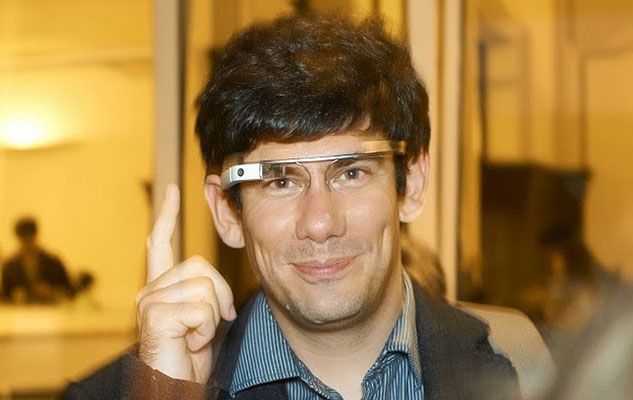Wearable technologies – an interview with Daniel Roggen
Sensor technology researcher Dr Daniel Roggen will be describing how, In the Era of Wearable Technologies, we are at the pivotal crossroads of sensors, electronics and artificial intelligence, for a British Science Festival event on 6 September at the Asa Briggs lecture theatre at the University of Sussex.

‘We are still far from understanding how the brain works’
What first sparked your interest in science?
When I was 15 and on holiday I read a computer magazine that had a special issue on neural networks, which is an artificial intelligence tool to recognise patterns, such as handwriting. I couldn't wait to get back home and to program my computer with the examples given in the magazine. However, the defining moment came when I did my Masters project on autonomous robotics.
What’s it like to have a ‘eureka’ moment?
I was working with a miniature two-wheel robot. I had programmed it to learn by itself, using techniques inspired from biological evolution, to navigate a small room to find a black target painted on a white wall. This worked very well: I could move the target to another location in the room and the robot would find it in the new place. At some point I decided to remove the target altogether. What I observed baffled me: the robot was driving towards the location where the target was first placed when the robot was learning to navigate! There were no distinctive marks on the wall, yet the robot somehow "remembered" where the target was placed initially. I was truly astonished and didn't understand how that was possible. It took me a while to figure out that the robot had learned to use the shadows in the room to navigate, without me telling it to do so! This made me realise the power of evolutionary techniques to so finely adapt behaviours to the environment in which the robot “lived”.
What will the audience learn at your event?
Many are familiar with wearable devices such as fitness trackers and smartwatches. I will present the brief history of wearables and explain what we understand by a modern wearable device. I’ll then show what we are doing to allow wearable devices to recognise and understand our everyday activities and daily routines and how this can be used to create smart assistants in the field of sport, health and lifestyle.
What’s important about your area of research?
Wearable technologies have a strong potential in the field of preventative healthcare. They will be able to help us better manage our health and make healthier choices by providing ‘just-in-time cueing’ to remind us to take a pill or see a doctor. They will also help to support people with specific conditions such as dementia, or Parkinson’s.
Which scientific discovery or invention has made the greatest difference to your life?
My research builds on the advances in microelectronics, which is what allows wearables to be each year smaller and smarter. Without microelectronics I wouldn’t be able to be active in the field of wearable technologies.
Which scientific mystery would you most like solved?
Often engineers take inspiration from how the brain works to advance artificial intelligence, but we are still very far from understanding brain function. Unlocking the secret might truly change our ability to develop advanced “intelligent” technologies with applications to healthcare, robotics and others that would improve our quality of life.
Which scientists (alive, dead or fictional) would you invite to a summer picnic?
Ada Lovelace (1815-1852) is considered to be the first computer programmer developing an algorithm for Babbage’s analytical engine, a mechanical computer. It would be very interesting to hear how the idea of algorithms and programmable computers developed such a long time ago, and explain what computers are nowadays.
Dr Daniel Roggen is involved with a lecture, In the Era of Wearable Technologies, for the British Science Festival.